Reflux Esophagitis (GERD) — LINX System: treatment in the Best Hospitals in the World
Treatment prices are regulated by national law of the corresponding countries, but can also include additional hospital coefficients. In order to receive the individual cost calculation, please send us the request and medical records.
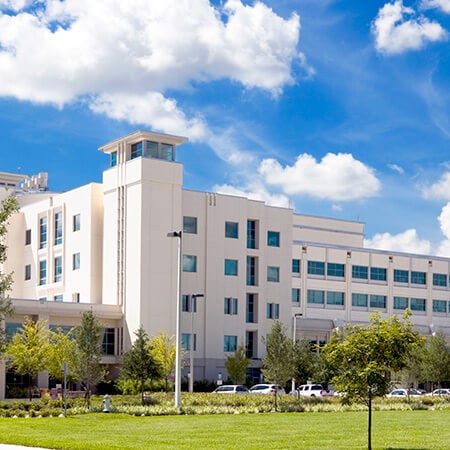
Department for Gastroesophageal Reflux Disease
The Department for Gastroesophageal Reflux Disease offers all the options of modern medicine for the elimination of this disease. The department's specialists give preference to an individualized treatment approach, and therefore they comprehensively assess each clinical case and select the necessary complex of therapeutic measures for each patient. Whenever possible, the doctors use conservative methods, but patients with advanced stages of gastroesophageal reflux disease (GERD) require surgery. The team of the department's surgeons has excellent skills in Nissen fundoplication and LINX Reflux Management System implantation, which are the most effective for GERD treatment. In most cases, the department's surgeons perform interventions using sparing minimally invasive techniques, which require only a few skin incisions to form a surgical access. Such progressive operations contribute to the speedy recovery of the patient after surgery, and also minimize the risks of developing severe bleeding and infections.
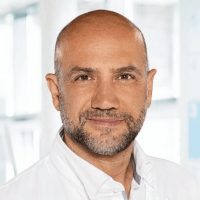





Department of General and Abdominal Surgery, Colorectal Surgery, Hepatopancreatobiliary Surgery, Hernia Surgery and Bariatric Surgery
The Department of General and Abdominal Surgery, Colorectal Surgery, Hepatopancreatobiliary Surgery, Hernia Surgery and Bariatric Surgery provides the full range of surgical treatment in its field of competence. The department's highly qualified surgeons annually perform about 2,000 surgical interventions. Extensive clinical experience allows the specialists to perform even particularly complex operations. The department’s advanced operating rooms serve for surgery to treat gastrointestinal diseases, liver, gallbladder, bile duct, pancreatic, rectal, anal and colon pathologies. The medical facility also successfully performs operations to treat hernias: inguinal, umbilical, and anterior abdominal wall hernias. In addition, the department's doctors deal with the surgical treatment of morbid obesity. Minor traumatic laparoscopic interventions are considered the gold standard, which guarantee a patient minimal risks and rapid postoperative restoration. Surgeons tell the patient in detail about their upcoming treatment and, in every possible way, support them in their recovery.
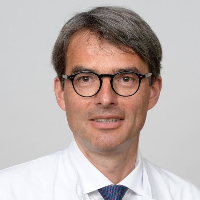






Department of General and Abdominal Surgery, Colorectal Surgery, Endocrine Surgery and Hernia Surgery
The Department of General and Abdominal Surgery, Colorectal Surgery, Endocrine Surgery and Hernia Surgery offers the full range of modern surgical interventions in the areas of its specialization. Every year, the medical facility performs more than 2,500 surgical interventions on an inpatient and outpatient basis. The department has vast clinical experience in the field of minimally invasive surgery, which allows the patient to avoid severe pain and prolonged hospitalization. In addition, the department offers robotic surgery using the most modern models of the da Vinci surgical system. The medical facility has the status of the Reference Center for Minimally Invasive Surgery and Hernia Surgery. Surgical treatment of cancer is one of the department's clinical priority focuses. A large number of da Vinci robot-assisted interventions are performed here for gastrointestinal cancers. The department holds a leading position in the use of the da Vinci surgical system in the treatment of rectal and sigmoid cancer patients. The operating rooms of the medical facility are equipped with the very latest technology, while hygiene and safety standards are at the highest level as well. Prior to surgery, the patient undergoes a comprehensive examination. Doctors also assess the risks of the upcoming operation and its expected results. With appropriate clinical indications, preference is always given to minimally invasive surgery.
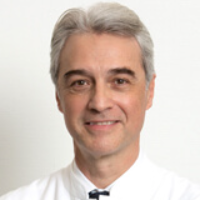
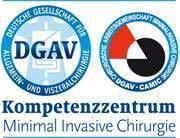
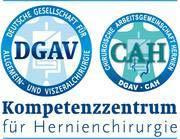
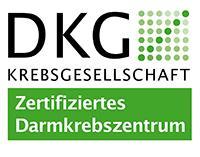


GERD (gastroesophageal reflux disease) is a chronic condition in which acid from the stomach is pumped into the oesophagus through a loose opening between them. The disease can last for years, intensifying and receding. Usually, GERD causes heartburn and belching, but it can also lead to coughing, hoarseness, and tooth decay. Long-term exposure to acid of the cells of the oesophagus causes them to degenerate and can lead to cancer, so GERD cannot be ignored and must be treated.
Overview
Gastroesophageal reflux disease (GERD) is considered to be a medical condition that develops when reflux of stomach contents causes symptoms that bother patients or causes functional complications. Heartburn and regurgitation are considered the most common symptoms of the disease, and reflux esophagitis is the most common complication.
The mechanisms of the formation of heartburn sensation remain not understood fully. Most often, heartburn is a consequence of pathological reflux of both acid and duodenal contents. Also, the sensation of heartburn may be associated with disturbances in the motility of the oesophagus, increased sensitivity of its mucosa due to disorders of the central and peripheral innervation, changes in psychological condition. Consideration and correct management of these processes determine the success of therapy largely.
The main goals of reflux disease treatment are the relief of symptoms, improvement of well-being (quality of life), as well as treatment and prevention of complications. In the presence of motor disorders, esophageal hypersensitivity, or changes in psycho-emotional status, their correction is required.
Symptoms
Esophageal symptoms. Heartburn is a burning sensation behind the sternum spreading from the bottom up, individually appearing when sitting, standing, lying, or bending forward, sometimes accompanied by a sensation of bitterness in the throat and mouth. It is often associated with a feeling of fullness in the epigastrium, which occurs on an empty stomach or after consuming any type of solid or liquid food, alcoholic or non-alcoholic beverages, or after the act of smoking.
Extra-esophageal symptoms: hoarseness (especially in the morning, due to irritation of the vocal cords by the stomach contents), dry cough, or wheezing (bronchospasm in response to irritations of the lower esophagus), chest pain (GERD is the most common cause of non-cardiac chest pain).
Alarming symptoms requiring urgent endoscopic examination are swallowing disorders (dysphagia), painful swallowing, weight loss, bleeding in the upper gastrointestinal tract (profuse or latent).
GERD may be asymptomatic; then reflux esophagitis is revealed incidentally during endoscopy. During GERD, periods of exacerbation and remission are observed. If left untreated, severe GERD can lead to serious complications.
Diagnostics
- EGD (esophagogastroduodenoscopy).
The standard for diagnosing GERD is EGD (esophagogastroduodenoscopy). This method is available and highly informative. It allows confirming or denying the presence of the disease in most cases. During the examination, one can notice inflammation of the esophageal mucosa: redness, increased vascular pattern, erosion, and ulcers. Besides, there may be reflux of stomach contents into the esophagus. If necessary, a biopsy is performed during EGD, which is taking a piece of the inner wall of the esophagus and examining it under a microscope.
- Gastroscopy.
Gastroscopy is indicated if symptoms persist for a long time (5-10 years), remain despite appropriate treatment, and atypical or alarming symptoms are present. It is also possible to detect a hiatal hernia or visible insufficiency of cardiac closure, as well as assess the severity of changes in the esophagus.
- A barium swallow test.
A barium swallow test (cine esophagram, swallowing study, esophagography, modified barium swallow study, videofluoroscopy swallow study) has limited use, but it can reveal anatomical abnormalities that contribute to diagnosing reflux disease or other complications of GERD, like narrowing of the oesophagus.
- Esophageal manometry.
Esophageal manometry is used to facilitate the correct placement of the probe for pH monitoring of the esophagus, to exclude disorders of esophageal motility, or to select the type of surgery.
Ambulatory 24-hour monitoring of esophageal pH with simultaneous measurement of esophageal impedance is also a standard for diagnosis making. Impedance assessments can detect reflux and determine its stage, while pH measurements can determine whether the reflux episodes are acidic or non-acidic.
Treatment
The main options of GERD treatment include recommendations for lifestyle and diet, drug therapy (antisecretory drugs, antacids), with the ineffectiveness of which the surgery is prescribed (e.g., laparoscopic fundoplication).
Surgery can be considered in:
- Patients who are not treated effectively by standard drug therapy
- Patients who are forced to take medications for life to relieve symptoms and ensure an adequate quality of life
- Patients who have severe complications of GERD (e.g., Barrett's esophagus, peptic strictures)
- Patients with extra-esophageal manifestations (hoarseness, cough, chest pain, aspiration)
Fundoplication is a traditional surgery in which the upper curve of the stomach (bottom) is wrapped around the esophagus and sutured into place so that the lower part of the esophagus passes through a small tunnel of the gastric muscle. This surgery strengthens the valve between the esophagus and the stomach (lower esophageal sphincter) and allows existing hernias to be removed, which helps to normalize the digestive process and heal the oesophagus.
Fundoplication is the intervention that can be performed through the abdominal cavity or chest. The chest option is often used if the person is overweight or has a short esophagus.
As a rule, fundoplication for reflux esophagitis is performed using a laparoscopic surgical technique through minimal punctures of the body.
If for some reason, fundoplication requires a large incision, patients will most likely spend 5-7 days in the hospital. Fundoplication is performed under general anesthesia. It takes 4 to 6 weeks to recover from surgery.
If the laparoscopic fundoplication is used, patients will most likely only stay at the hospital for 2 to 3 days. The absence of large incisions helps to reduce postoperative pain. After laparoscopic fundoplication, most people can return to work or normal routine in about 2 to 3 weeks, depending on their lifestyle.
If it is not possible to perform full fundoplication or partial fundoplication, the installation of the LINX system is done.
The LINX Reflux Management System offers the option of a simple laparoscopic surgery to strengthen the lower sphincter between the esophagus and stomach. It restores the body's natural barrier to reflux without any anatomical changes and minimal side effects. Experience shows that patients are asymptomatic immediately after surgery and therefore the quality of life is improved significantly.
The LINX Reflux Management System is a small flexible titanium bead chain with a magnetic core. The magnetic core keeps the sphincter closed, preventing reflux.
The LINX system is placed on the esophagus just above the stomach during the minimally invasive surgical procedure called laparoscopic surgery. This surgery to treat reflux disease is performed under general anesthesia and usually takes less than an hour. The procedure is performed only in specialized hospitals certified by the LINX Reflux Management System manufacturer.
The LINX system works immediately after implantation. After the procedure, patients will be able to eat normally and can usually resume normal activities in less than a week. Unlike other surgical treatments for reflux disease, the LINX system does not require any anatomical changes in the stomach.
It is important to eat small meals several times a day after surgery to keep the LINX system working properly. In some cases, it has been observed that about 2 weeks after the operation, there may be a short-term mild discomfort during the passage of food through the esophagus due to healing or scarring around the LINX reflux system implant. At this point, it is extremely important to continue eating regularly to keep the LINX magnetic reflux system moving. Each patient reacts differently to these situations, so symptoms range from very mild to noticeable. Healing is complete 12 weeks after the surgery, and the patient can eat and drink everything, no more medication is required.
With LINX, the patients receive the same benefits of reflux control as with fundoplication, but without severe complications.
The LINX system, according to official clinical studies of the FDA (United States Food and Drug Administration), is not only safer but also more effective. The LINX is available in the United States as well as in Europe at clinics specializing in the LINX system.
The LINX device is a long-term implant, but surgery may be required at any time to remove and replace it. Treatment for side effects may include removal and/or replacement of the implant.
Potential complications associated with the LINX reflux control system include achalasia (lack of relaxation of the lower esophagus); damage to the esophagus spleen or stomach; organ damage due to device displacement; damage to the esophageal surface by the device; bloating; nausea; diarrhea; bleeding; dysphagia (difficulty swallowing); impaired gastric motility; peritonitis (inflammation of the peritoneum); device displacement (the device cannot be detected at the implantation site); removal of the device; worsening of preoperative symptoms (including dysphagia, heartburn, etc.). The complications are extremely rare.
Where can I undergo treatment for reflux esophagitis with the LINX system?
Health tourism is becoming more and more popular these days, as treatment abroad often ensures a much better quality of treatment.
The best success rates in LINX system treatment for reflux esophagitis demonstrate:
- Academic Hospital Regio Pinneberg, Germany
- Academic Hospital Brothers of Mercy Munich, Germany
- University Hospital of Ludwig Maximilian University of Munich, Germany
- Charite University Hospital Berlin, Germany
- University Hospital Ulm, Germany
You can check out the full list of hospitals on the Booking Health website.
The cost of treatment
The prices in hospitals listed on the Booking Health website are relatively low. With Booking Health, you can undergo treatment for reflux esophagitis with the LINX system in the best hospitals in the world at an affordable price.
The cost of treatment varies, as the price depends on the hospital, the features of the disease, and the complexity of its treatment.
The cost of treatment in Germany is 23,250-50,924 EUR.
The cost of treatment in Israel is approximately 30,578 EUR.
The cost of treatment in Turkey is approximately 25,995 EUR.
You might want to take into account the cost of the possible additional treatment and follow-up care. Therefore, the ultimate cost of treatment may differ from the initial price.
To receive the information on the cost of treatment, contact us by leaving the request on Booking Health website.
How can I undergo treatment for reflux esophagitis with the LINX system?
It is not easy to self-organize any treatment abroad. It requires certain knowledge and expertise. Thus, it is safer, easier, and less stressful to shift some responsibility onto a medical tourism agency.
As the largest and most transparent medical tourism agency, Booking Health has up-to-date information on treatment for reflux esophagitis with the LINX system in the best hospitals in the world. With precise information on the success rates of different hospitals, Booking Health will help you select a medical facility, taking into account your wishes for treatment.
We want to help you during this difficult time and take on all the troubles. You can be free of unnecessary stress, while Booking Health takes care of all organizational issues. Our goal is to find the best medical facility for you, where you can undergo LINX system treatment for reflux esophagitis safely.
Medical tourism can be easy! All you need to do is to leave a request on the Booking Health website, and our manager will contact you shortly.

